WASHINGTON – Today, the U.S. Supreme Court issued decisions to punt on the constitutionality of partisan gerrymandering for both Gill v. Whitford (Wisconsin’s Republican gerrymander) and Benisek v. Lamone (Maryland’s Democratic gerrymander).
The Wisconsin case was dismissed on procedural grounds and sent back to the district court for review. In the Maryland case, the High Court – in an unsigned opinion – agreed with the lower court’s decision to not force the Old Line State to redraw its Congressional maps before the 2018 election. The Supreme Court did not address the issue of partisan gerrymandering in either case, leaving the door open to rein in partisan gerrymandering in the future.
“These Supreme Court decisions mean that the fate of redistricting reform in Illinois remains firmly in our hands,” said John Sirek, Interim Executive Director of CHANGE Illinois. “While people across the nation, regardless of political ideology, increasingly see gerrymandering as stain on our democracy, entrenched political powers will not surrendered easily. But the tide of change is clearly growing. Our work will continue and ultimately the voice of Illinois voters will be heard.”
Despite the decision by the Court to not rule on the constitutionality of partisan gerrymandering, there is growing momentum across the country to challenge states’ discriminatory gerrymandered maps.
In just the past few years, maps have been thrown out in Alabama, Florida, North Carolina, Virginia, and most recently, Pennsylvania. Last month, Ohio voters passed a ballot referendum to establish redistricting reform in the Buckeye State. Additionally, coalitions in Colorado and Utah have already qualified redistricting reform initiatives for the 2018 November ballot, with Missouri and Michigan in the final stages of getting their initiatives approved for the ballot.
The Supreme Court still has two additional opportunities to meaningfully weigh in on the issue of gerrymandering in the near future.
First, the Court has yet to release its judgment on Texas’ racial gerrymanders of their Congressional and legislative maps. That case, Abbott v. Perez, will be released before the end of June and gives the Court another opportunity to reiterate its past precedent that racial gerrymanders are definitively unconstitutional. Second, the High Court has already agreed to hear a North Carolina partisan gerrymandering case (Rucho v. Common Cause) next term, meaning that 2019 could be finally be the year the Court addresses the issue.
CHANGE Illinois and its coalition partners will continue to work with their networks of voters and with likeminded public officials to call for redistricting reform in Illinois and to make gerrymandering a key election issue this November. Coalition building and public education efforts are both parts of CHANGE’s multi-year reform strategy leading up to when the new maps are drawn in 2021.
